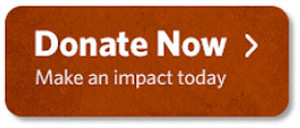May 10-15, 2016
“And not only so, but we glory in tribulations also: knowing that tribulation worketh patience; And patience, experience; and experience, hope: And hope maketh not ashamed; because the love of God is shed abroad in our hearts by the Holy Ghost which is given unto us.”
— Romans 5:3-5
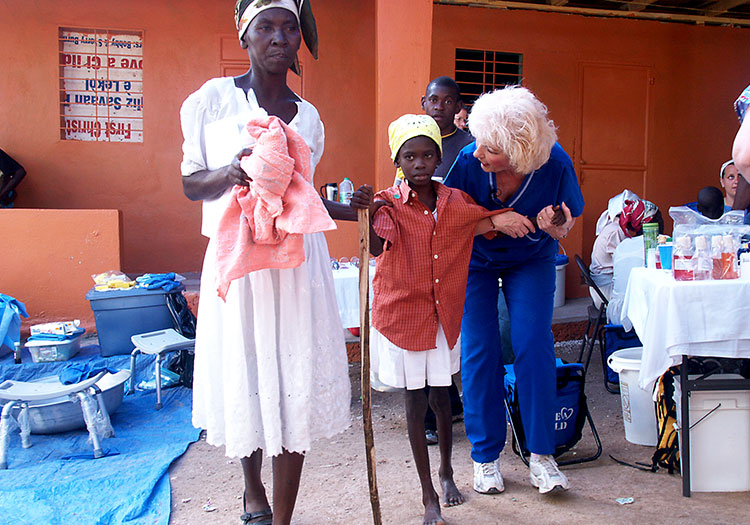
When one looks at all the challenges that the Haitians must endure day-to-day just to survive, we find it unimaginable, as to how any child or adult with physical or intellectual disabilities can even survive a day in this hostile environment. Unfortunately, the disabled are generally shunned in Haiti. There is long-standing fear among the people, especially those in the mountains, that if someone suffers from either a physical or mental disability, that he or she is possessed by the devil.
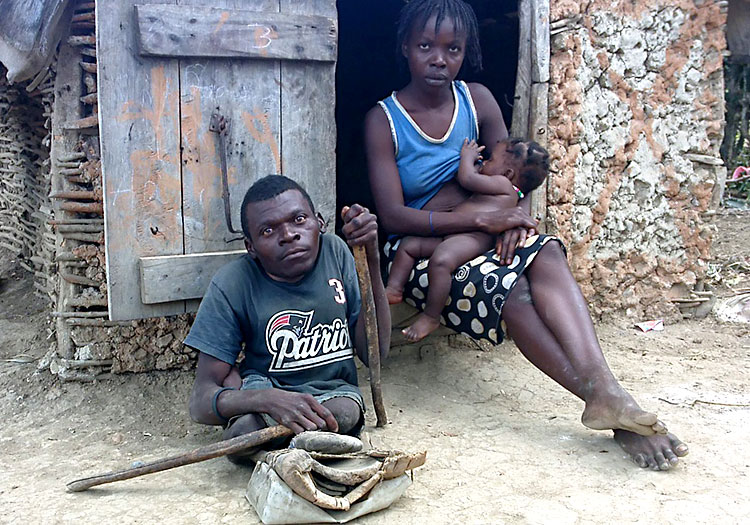
There is noticeable discrimination against people with disabilities, which is deeply ingrained within Haitian culture. Many people feel that a disabled child will bring harm to other children and the parents often abandon the child.
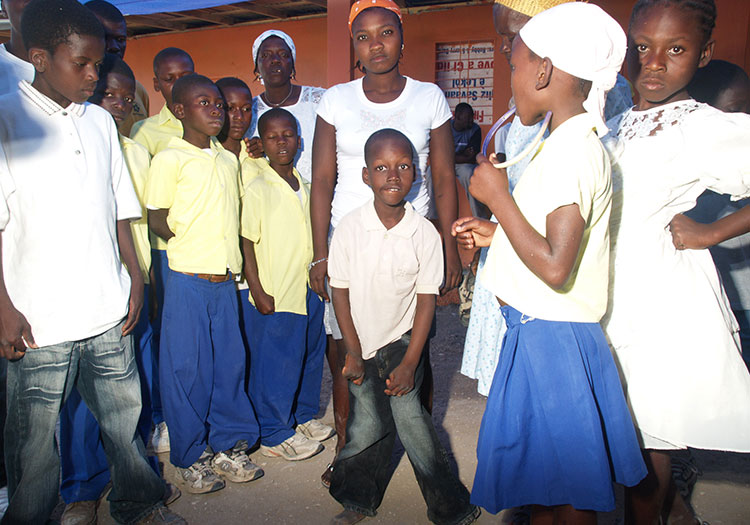
You may have seen in one of my previous journals or on one of our TV programs where we take Mobile Medical Clinics into the “regions beyond” to the hundreds of people that come from all over the mountains. Sometimes we will see an occasional person with a disability. Those with physical or mental challenges are generally hidden from the outside world as many feel shame if they have a member of their family with a disability.
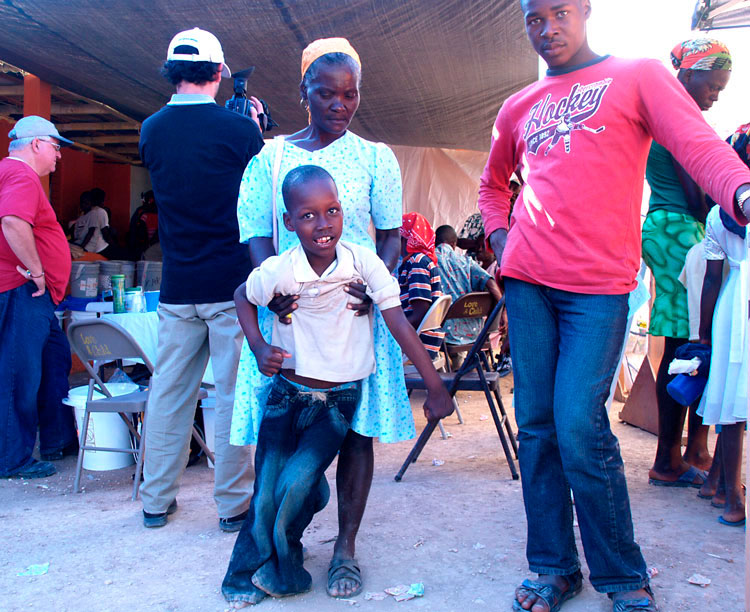
A disabled child becomes a burden or a stigma for the family and they are too embarrassed to send him or her to school with other children. These children are often discarded and neglected by their families, and society.
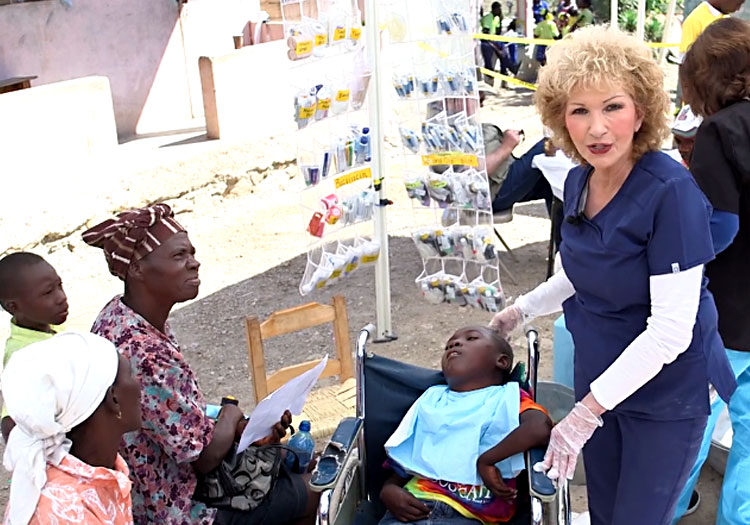
In Haiti one in ten people are disabled and those with special needs are often treated so badly. Discrimination against disabled children is common, with many children with physical or mental disabilities permanently left at home and denied the right to become a part of everyday life. Due to a severe lack of education in the area of disabilities, many families simply don’t know what’s wrong with their child or how to care for him or her, sadly resulting in many being abandoned at an early age.
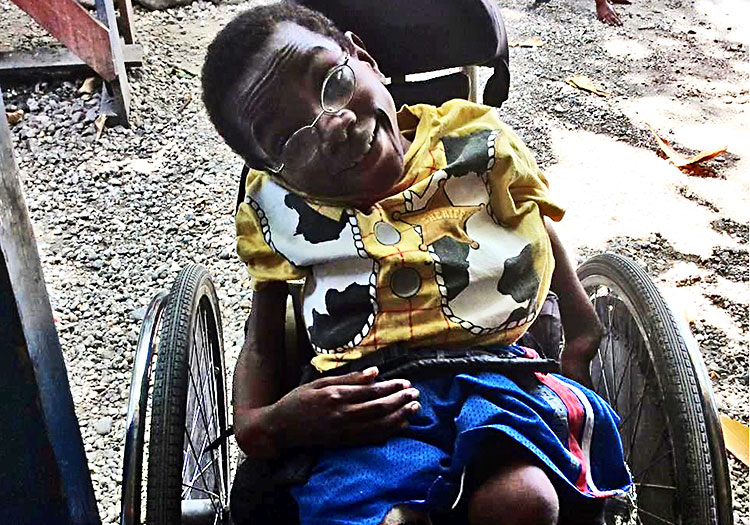
‘Cocobai,’ is Creole for what Haitians call a person with disabilities, which roughly translates as ‘worthless’ or ‘disgrace.’ Disabled Haitian children are completely excluded from attending school.
Melissa’s Hope, Orphelinat Joie de Vivre and Mephibosheth House are orphanages with which we share our food. These organizations care for these children below. They are just some of the many orphanages that take in children with special needs who have been abandoned.
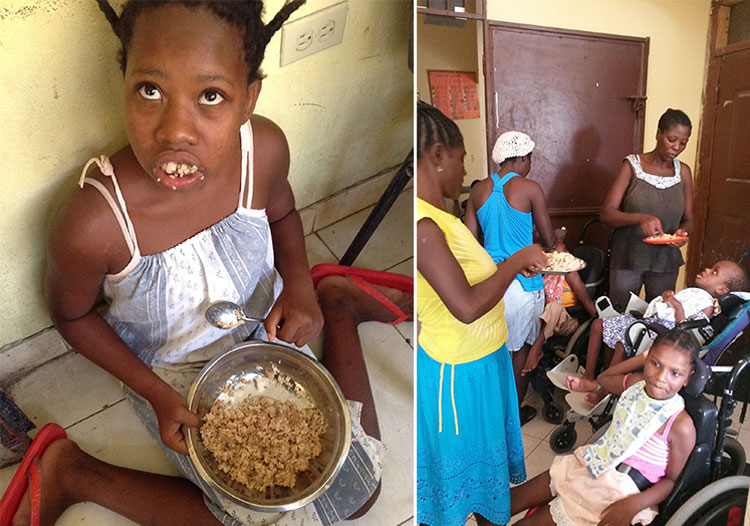
Melissa’s Hope Orphanage is home to twenty orphaned children, half with severe disabilities. When a child is born with disabilities, the family believes evil spirits have cursed him or her, which is why most orphanages are filled with special needs children abandoned by families who fear being ridiculed. Unfortunately, rehabilitation services and ongoing therapies for managing special needs children are rare in Haiti. With disabilities making up ten percent of the population, rehabilitation services are almost non-existent.
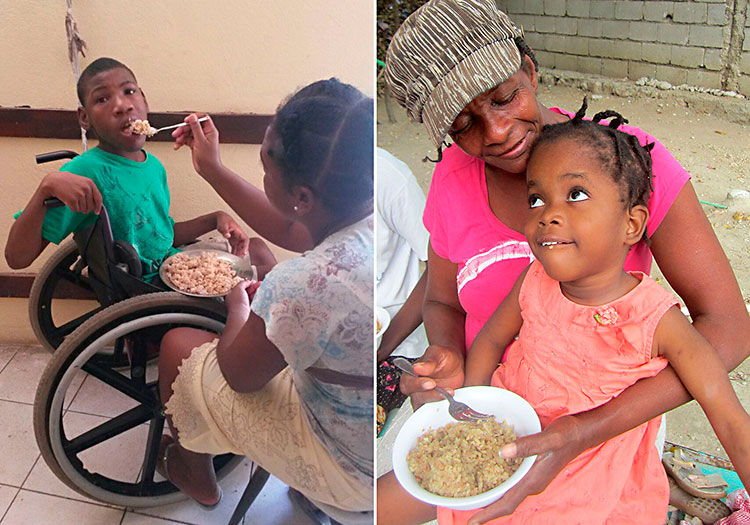
This is Dieuferly, one of our Love A Child orphans. He was born with bilateral clubfeet and his mother was too poor to take care of him. We were able to get him the operations so that now he can walk and run. But most Haitian children with this type of disability would have been left to die or be abandoned so that they aren’t a further burden to their families.
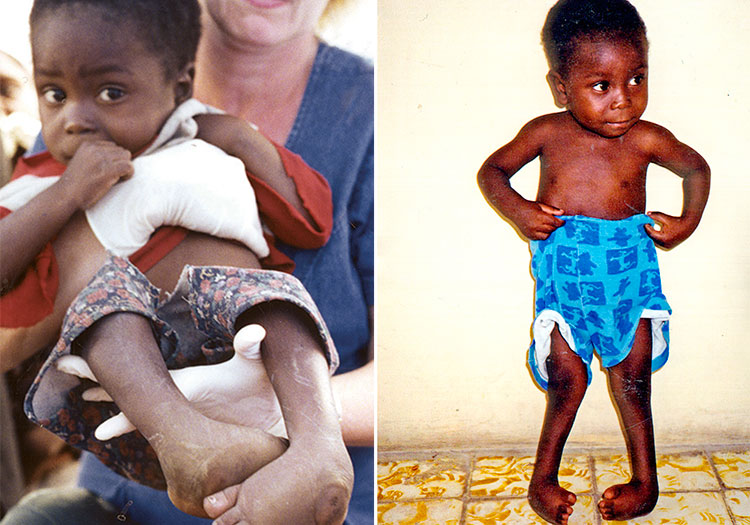
Haiti is the least accessible place in the world for special needs people… Since the earthquake in 2010 we have many more physically challenged people in Haiti and the situation is in crisis. For those with physical disabilities, it is very difficult to find wheelchairs for those in need. Those that are able to use wheelchairs or PET devices, have no public access for the use of wheelchairs, because there are no sidewalks. In the remote areas, they have little or no way to get around; because there are no roads and the walking paths are rough and impossible to pass with a wheelchair.
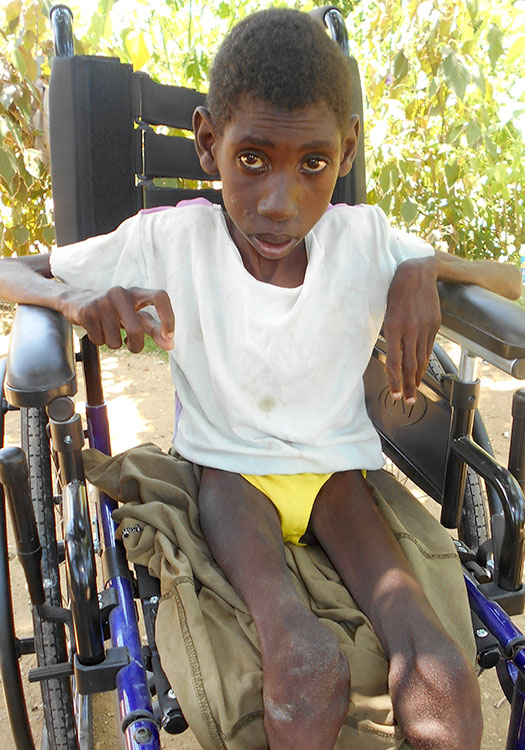
Edson Antoine, who is now 26-years-old, developed Meningitis at the age of three months. He has never been able to attend school because of his disability and he cannot work. Edson’s disability has been an extraordinary challenge for his family. Now, he has received a wonderful PET (Personal Energy Transportation) cart, which he can move with his hands and arms, and he has his freedom and dignity! Thank you, dear friends, who sent this PET cart!
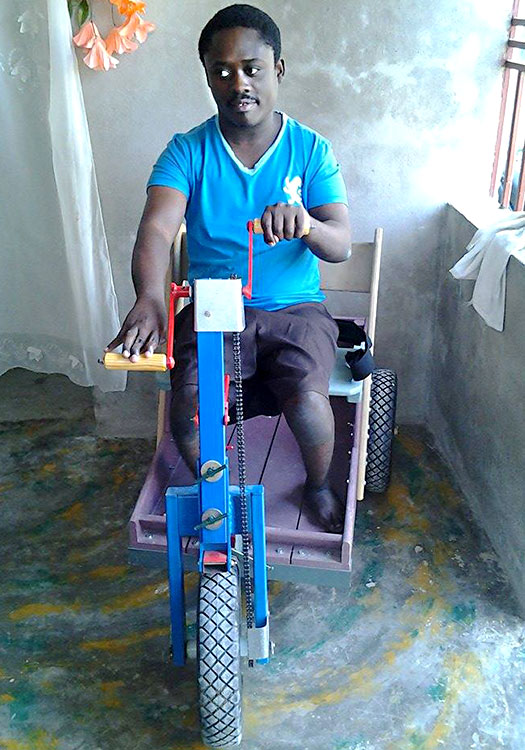
Here is a sad story with a message of HOPE! Carpo is a poor man from the mountains of Ranquitte, Haiti. He was born with a crippling deformity, and his only method of getting around was using a couple of sticks and a plank of wood! Carpo makes his living from braiding pieces of palm branches into rope to sell. We were so thankful to give him this PET cart that was created by Personal Energy Transportation and donated by Tom Behren’s PET Workshop out of Tampa, Florida.
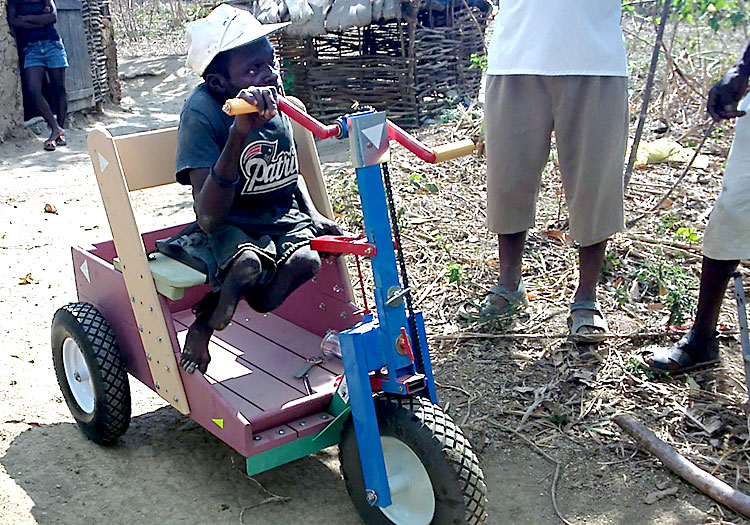
After the 2010 Earthquake, the need became even greater as there were at least 4,000 new amputees that were now considered disabled.
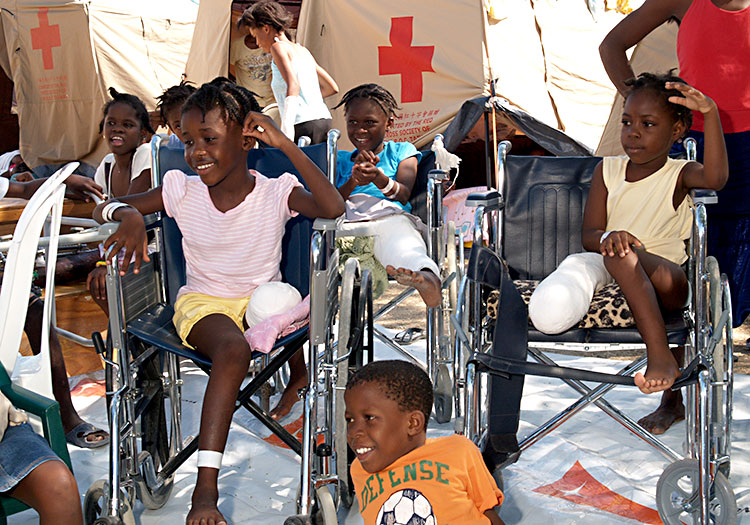
The government estimates that 300,000 people were injured in the disaster, many of whom will suffer long-term disabilities. There are now thousands of new amputees resulting from the earthquake, including many children and young people; one of the longest-lasting effects of the earthquake will be a generation of amputees. Disabled children will be more visible than ever, and the abuse must stop. This is a society that chooses to ignore that a disability even occurs. We are so thankful for all the missionary organizations in Haiti that take in so many of these abandoned children and ensure they receive a hot meal and personal care that is required in these extraordinary circumstances.
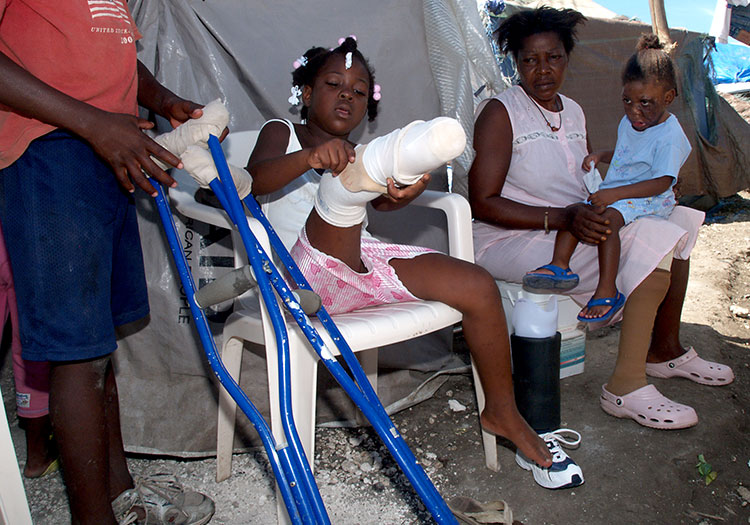
We are in immediate need of at least three wheelchairs for adults and children, 3-wheeled bicycles and other adaptive tools that can help people with physical disabilities. For those that suffer mental or intellectual disabilities, there is so little that we can do, but try to refer them to any organization that works with special needs children.
It is through the help of all our sponsors and partners like you that Love A Child can assist all these missionaries, orphanages and other organizations that we are able to share our food and other donations among the very poor, and those with special needs. Thank you all, as your support is making a big difference to so many here in Haiti.
God bless you,
Sherry


